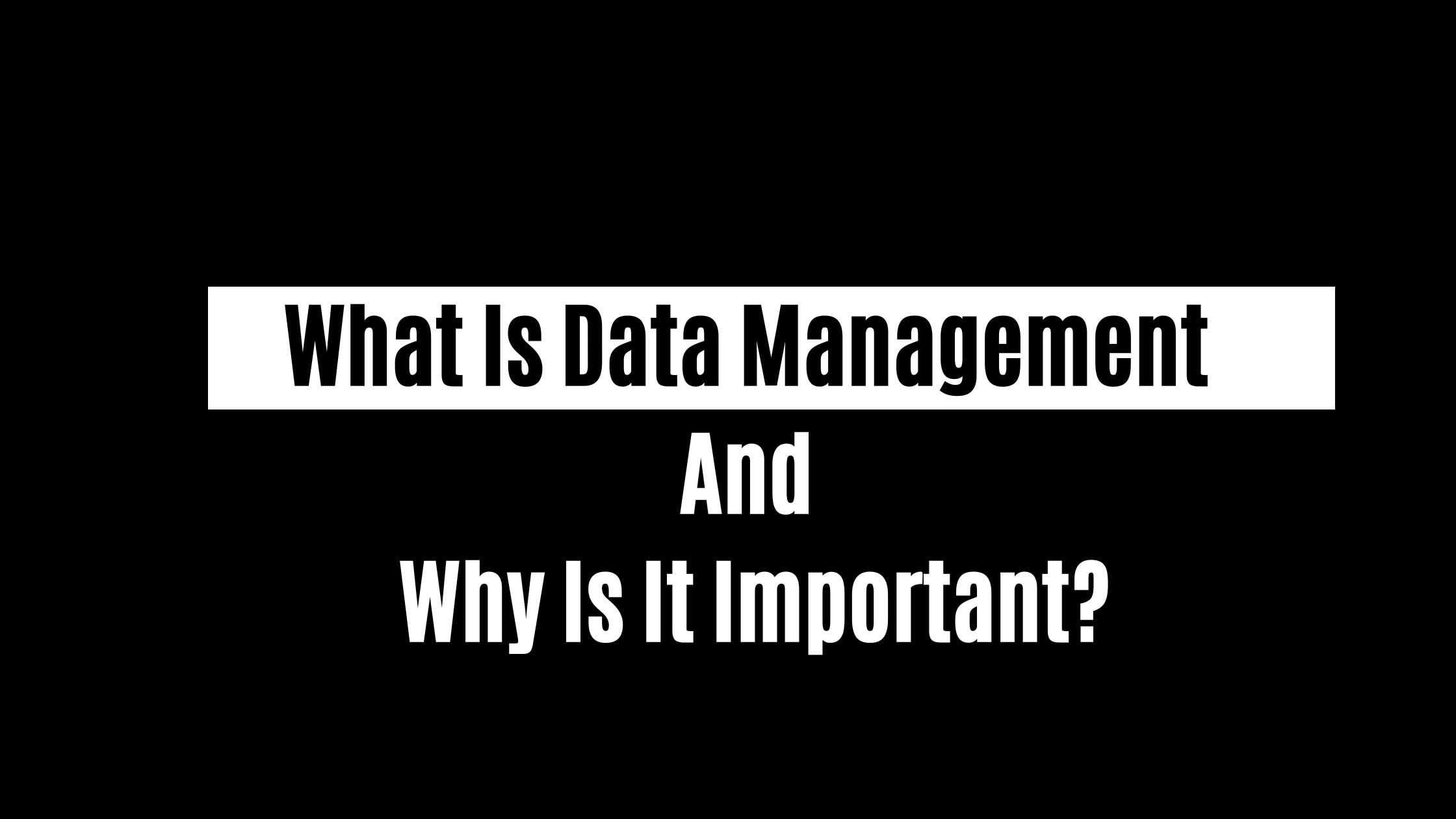Data management is an important aspect of a business. If your data is not managed correctly, it can lead to all sorts of problems for your company. This blog post discusses data management and why it is so important. It also provides some tips on how you can improve your data management process.
What is data management?
In a gist, data management is the process of collecting, organizing, storing, and protecting data. It involves various activities such as gathering, validating, transforming, sorting, exploring, and analyzing data to create meaningful insights that can be used for decision-making. Different data intelligence platforms are used for these processes. These platforms enable businesses to collect and store data from multiple sources, such as web, mobile, and CRM systems, so that this data can be used for analysis.
Why is data management critical?
Data management is critical because it enables businesses to make informed decisions based on accurate and timely insights. It also helps organizations identify trends in the market and create strategies accordingly. Proper data management also helps safeguard businesses from security breaches and other risks associated with data misuse.
● Make informed decisions
Based on the data gathered, businesses can use data analytics platforms such as machine learning to analyze, explore, and interpret the data. This generates meaningful insights that can be used as a relevant basis to make informed decisions based on accurate information. For instance, if you are running a marketing campaign, you can use this data to understand what kind of content resonates with your target audience and create strategies accordingly. If your target market is in a particular region, you can use data analytics to determine the best time and place for your campaigns.
● Interpret business trends
To get ahead of your competitors, staying up to date with the latest trends in your industry is crucial. With the help of data analysis, you can identify emerging trends and adjust your business strategies accordingly. For example, if a new fashion trend affects your target market, you can use this data to create content or products that cater to this trend. Often, data analytics can provide insights you may not have even been aware of, such as a new customer segment for your product or a potential acquisition opportunity. But you must remember that data analysis is only as good as the data it is based on. This means you must ensure that the information you gather is accurate and based on reliable sources.
● Improve security
Data management also plays a crucial role in protecting businesses from security risks. By using secure storage solutions and encrypting the data, companies can protect their confidential information. Organizations should also have a system to monitor suspicious activities and take steps if any security threats arise. For example, if your data is stored on the cloud, you should set up logging and notification systems that alert you when suspicious activity occurs. Properly managing your data and taking precautions to protect it can reduce the risk of a security breach.
How can your business improve its data management?
Data management is an ongoing process that requires constant review and improvement. Here are a few tips to help you enhance your business’s data management process:
- Establish data governance: First and foremost, you need to establish a robust data governance framework that outlines the standards for collecting, storing, and sharing data across your organization. It should also include provisions for data privacy and security.
- Invest in reliable storage solutions: Any business dealing with sensitive customer information needs to invest in secure storage solutions such as cloud storage services or encrypted hard drives.
- Automate the data management process: By automating your data management process, you can save time and effort while also increasing accuracy and efficiency. This can be done using specialized software or AI-driven analytics platforms.
- Enforce data security policies: Ensure all employees are aware of your organization’s data security policies and consider implementing additional measures, such as setting up two-factor authentication or password standards.
- Monitor data usage: Finally, it is essential to monitor who has access to what data to ensure that it is not being misused or abused. This can be done by regularly auditing the system and tracking user activity.
Data management is essential for businesses to make informed decisions and stay ahead of the competition. It helps them identify trends and interpret them to create strategies to help them succeed. Additionally, data management also aids businesses in protecting their confidential data from security breaches and other risks. To reap the benefits of data management, organizations must ensure that they have a proper system for securely collecting, managing, and storing their data. Rest assured that you can take your data management to the next level with some effort and expertise.







